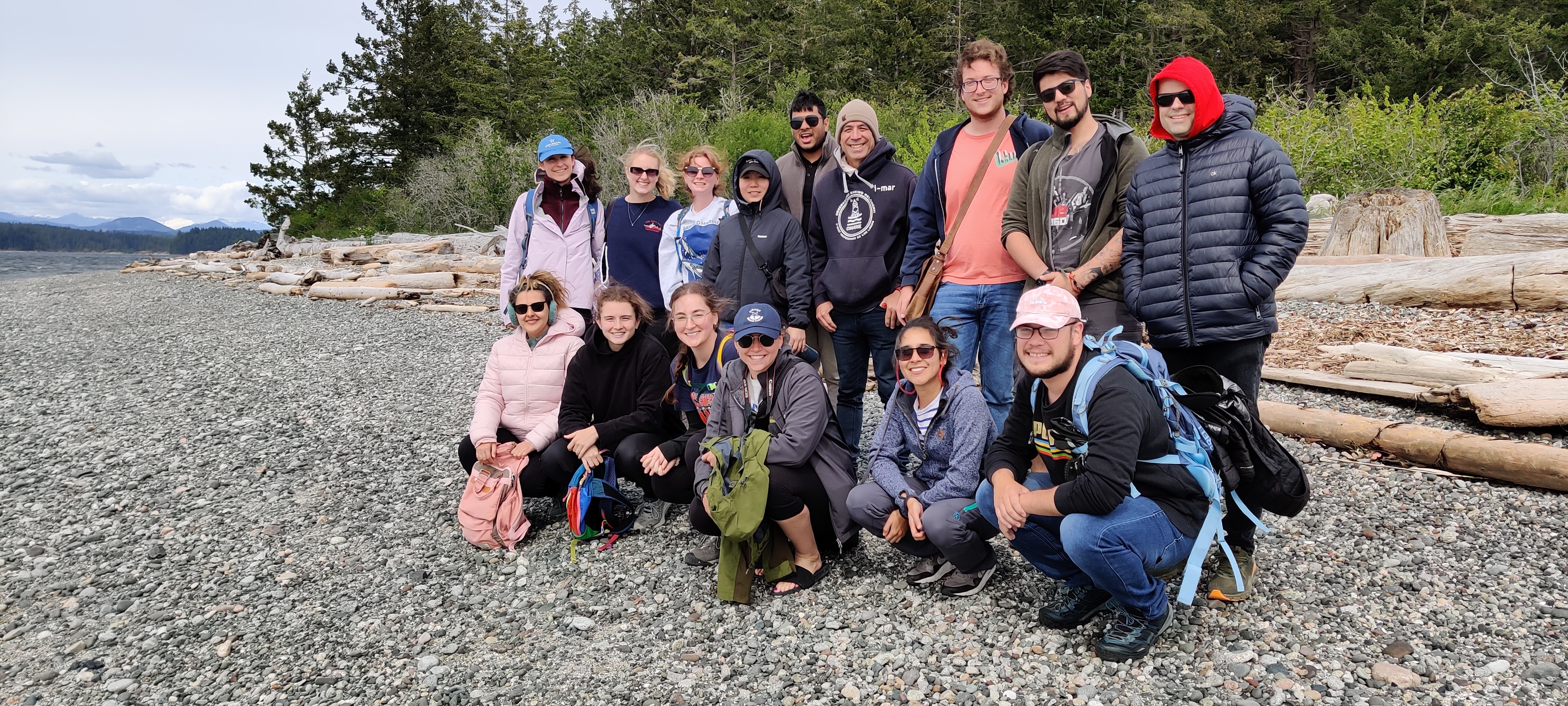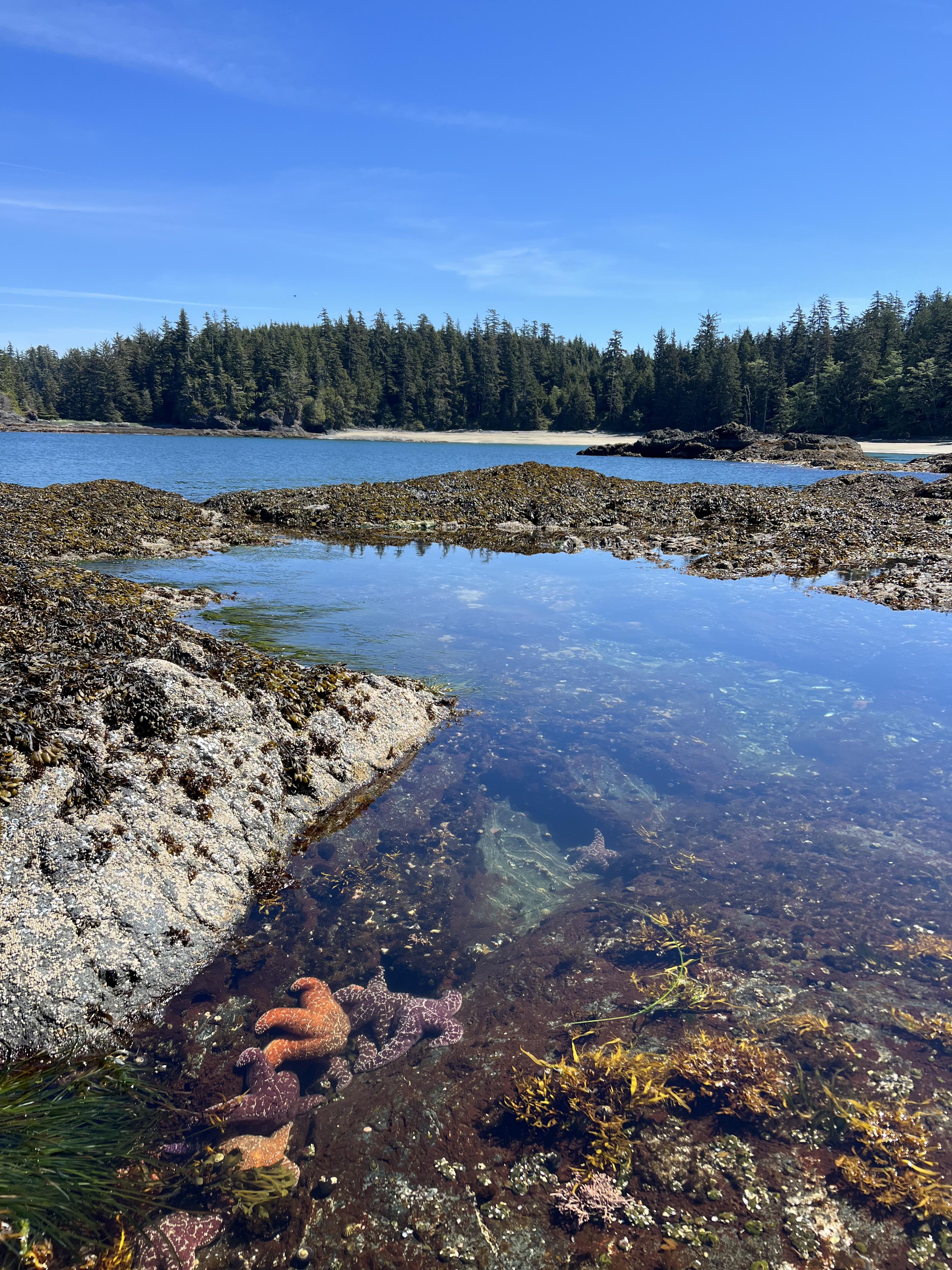Third annual PRODIGY field school takes place on Vancouver Island

This week students returned from the third annual PRODIGY (Pacific Rim Ocean Data Information and Technology) field school. The international and interdisciplinary group included seismologists, biological, physical, and chemical oceanographers from Canadian universities, the University of British Columbia and University of Victoria, as well as Chilean institutions, Universidad de Los Lagos, Huinay Scientific Centre, and the Universidad de Concepcion.
This program offers a unique opportunity for collaboration between early career western Canadian and Chilean researchers. Despite the great distance between the two countries, they face remarkably similar ocean-related challenges. Both have large growing aquaculture industries, are located on subduction zones prone to tsunami and earthquakes, have extensive and complex coastlines with numerous islands and fjords, and both are documenting extreme low oxygen events in deeper waters. PRODIGY aims to train the incoming generation of ocean scientists to be equipped to address research questions related to these environmental challenges. Each year the program hosts a 1-2 week field school alternating between Vancouver Island and northern Patagonia that complements a year long ocean data science course. This year, students traveled to the Bamfield Marine Science Center on the west coast of Vancouver island to participate in a week of extensive oceanographic sampling. Then students moved to the Hakai Institute for a short data science retreat, where they tested real-time data produced by the SalishSeaCast model developed by EOAS Professor Susan Allen against field observations collected by a glider from the Canadian Pacific Robot Ocean Observing Facility’s fleet.
Students in the field school gained hands-on experience with a wide variety of oceanographic instruments and had opportunities to network with instrument manufacturers and institute directors from Hakai and Bamfield. Next year’s field school is slated to take place in Chile at the Huinay Scientific Centre in northern Patagonia. Graduate students wishing to participate should enroll in EOSC 595F: Ocean data observations, analysis and communication.
